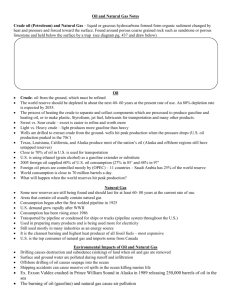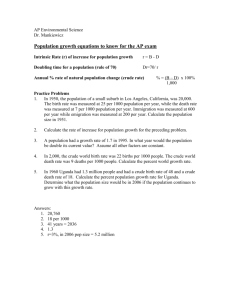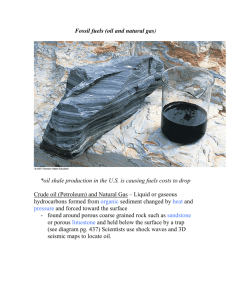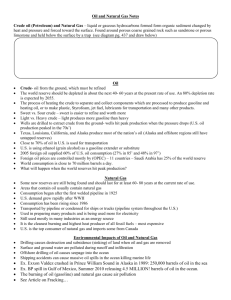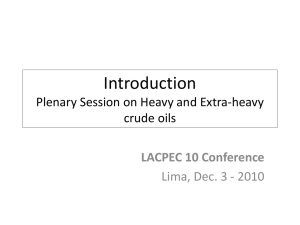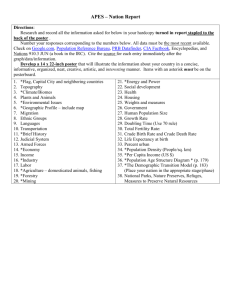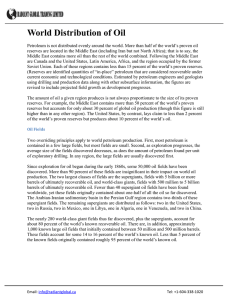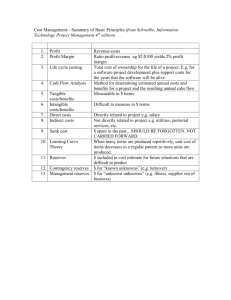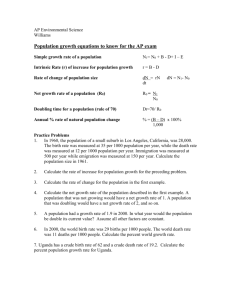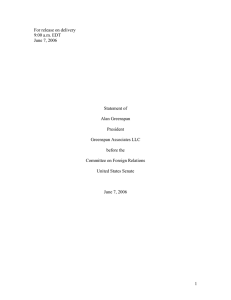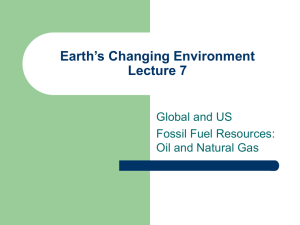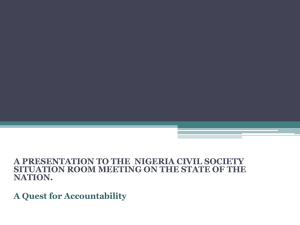Crude Oil
advertisement
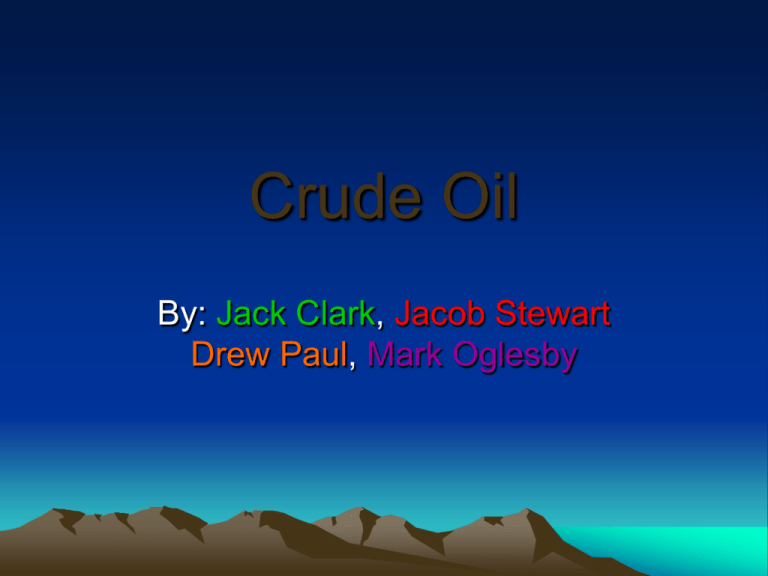
Crude Oil By: Jack Clark, Jacob Stewart Drew Paul, Mark Oglesby What is Crude Oil? • Crude Oil is petroleum that comes out of the ground before it is refined. • It is formed from fossilized ancient vegetation and animal remains. • Deposits can be found in the US, Canada, Iran, Iraq, Saudi Arabia, etc. • It’s a gooey black liquid, that is trapped deep within earths crust, dispersed in pores and cracks. Peak Production • The pressure in a well drops, and its rate of conventional crude oil production starts to decline. Proven Oil Reserves • Identify deposits from which conventional crude oil can be extracted profitably at current prices with current technology. Extraction process • Pump oil up from underground reservoirs – From underneath land and sea – Requires huge amounts of high quality energy – Can cost billions per well Advantages • • • • High net energy yield but, it is decreasing Efficient distribution system Low land disruption Ample supply for several decades Disadvantages • Water pollution from oil spills and leaks • Environment costs not included in market price • Release of CO2 and other air pollutants when burned • Vulnerable to international supply interruptions OPEC • Organization of Petroleum Exporting Countries • Iran, Iraq, Kuwait, Saudi Arabia, Venezuela • Have a huge influence in oil prices and trade Oil Depletion Time • Net increase of global oil production at about 1% per year • But it is expected to fall to 0% and even go into the negatives by this year • Decline rate is expected to reach 10% by 2030 • There are enough oil reserves to last only 40 more years Net Energy • Crude oil has a high net energy yield, but it is decreasing every year Proven vs Unproven reserves • Unproven reserves – Geologically equivalent to proven reserves – Political and regulatory barriers to extracting the oil within • Proven reserves – 90% certain the crude oil within the reserve is recoverable – Largest proven oil reserves are in Saudi Arabia, Canada, Iran, and Kuwait Sources • http://www.petroleum.co.uk/petroleumreserves • http://www.imeche.org/knowledge/themes/ energy/energy-supply/fossil-energy/whenwill-oil-run-out • Miller, G. Tyler, Jr. LIVING IN THE ENVIRONMENT. 17th ed. Canada: Yolanda Cossio, 2012. Print. AP Edition.
